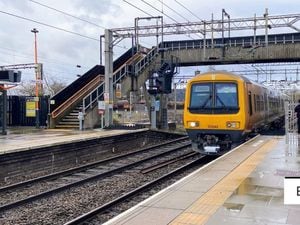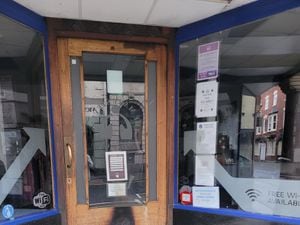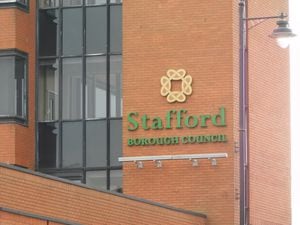School admissions 2016: Primary school places revealed across the region
The anxious wait is over for thousands of parents as primary school places are announced across the region.
Four and five-year-olds are learning which primary school they will be attending from September, on what is commonly known as National Offer Day.
A shortage of places means many parents will be 'disappointed', according to a Government minister.
[breakout title="Wolverhampton primary school places: 96 per cent get top five school"]
In total 3,392 primary school applications were submitted on time in Wolverhampton and of these 87.5 per cent (2,968) have been given a place at their first choice school.
When the 128 applications received after the January 15 deadline are included this rate drops to 85.8 per cent. And 96.4 per cent of on-time applicants have been given a place at one of their five preferred schools.
Julien Kramer, Wolverhampton City Council's director of education, reassured downbeat parents that they could appeal their school allocation if they felt hard done by.
He said: "There are unfortunately always going to be some parents and pupils disappointed because they haven't got a place at the school they wanted."
"I'd like to reassure them that we will be operating waiting lists over the coming months and if places become available they will be reallocated. Parents who are unhappy with the allocation can also appeal to an independent panel."
Mr Kramer said the popularity of the city's schools was a sign of their recent success.
"Wolverhampton's schools are more popular than ever," the education boss said.
"This reflects well on the improving standard of education in our city. It is pleasing to see that so many parents have secured reception class places for their children at either their first choice school or at one of their preferred schools."
[/breakout]
[breakout title="Staffordshire primary school places: 98 per cent get top three choice"]
In Staffordshire 9,278 places have been allocated of which 92.3 per cent (8,565) were at the child's first choice school and 98 per cent (9,110) were at one of the three preferred options.
The county council has added more than 1,700 primary places in the last two years to cope with an 11 per cent rise in the birth rate in Staffordshire over the last decade.
Ben Adams, the county council cabinet member for learning and skills, said the council intended to keep building new schools to keep up with demand.
He said: "We estimate that over the next 5 years, we will need around 7,000 primary and 3,000 secondary school places to meet expected demand. By building new schools and making better use of existing accommodation, we can ensure the majority of parents are offered one of the top three preferred places.
"The next 15 years will see the school landscape change in Staffordshire. This means that the work to ensure there are enough school places to cope with demand will continue for years to come."
[/breakout]
Priti Patel said it was "deeply regrettable" that families in England would be hit by a shortage in primary school places.
The employment minister, a Brexit supporter, blamed uncontrolled migration for putting "unsustainable pressure" on public services and warned the problem would only get worse as more countries became members of the European Union.
[breakout align="right" title="What now?"]
The application process varies between authorities but if you applied online you can find out the status of your application on the web portal of the relevant council website.
Alternatively authorities are sending out letters from today notifying you of the allocated school.
By law, all parents must be given the opportunity to appeal the decision.
If you are unhappy with the school and wish to appeal, hearings will be held from May to August.
Details on how to appeal, including the closing date, will be included with your notification letter.
[/breakout]
Ms Patel said: "The shortage of primary school places is yet another example of how uncontrolled migration is putting unsustainable pressures on our public services.
"Education is one of the most important things that Government delivers, and it's deeply regrettable that so many families with young children are set to be disappointed today."
Unions and town hall leaders warned Government reforms that mean all schools will convert to academies are set to fuel the shortage in school places.
Councils will not have the power to force schools to expand in the future, even where there is demand and capacity, the Local Government Association (LGA) said.
It warned that an additional 336,000 primary school places would be needed by 2024.
[breakout title="Sandwell primary school places: 88 per cent get first choice"]
In Sandwell every one of the 4,743 applications received were offered a place.
Of these, 87.8 per cent (4,163) were given a place at their first choice school.
The child's second choice was offered to 5.5 per cent (26), third choice to 1.3 per cent (62) and fourth choice to just 0.3 per cent (15).
Chris Ward, director of education in Sandwell, said: "We are consistently proving we are able to keep up with demand for primary school places and it's good news we are offering such a high percentage of parents their preferred choice."
[/breakout]
[breakout title="Dudley primary school places: 97 per cent get preferred school"]
Parents in Dudley had to wait until 2pm to find out what school their children have been allocated.
In the borough 97 per cent of children were given a place at one of their top five preferred schools, while 88 per cent were allocated their first choice.
Tony Oakman, strategic director for people at Dudley Council, said: "We are delighted we have maintained our high standards in admissions and are giving the vast majority of children and families, a school of their choice.
"School places are allocated in strict accordance with admission arrangements for individual schools and in line with the statutory admission code. This means unfortunately there will be some disappointment for a few families, particularly where parents have selected popular schools. However, 88 per cent have been offered their first preference.
"Starting school is an exciting time for children and their families, so I'd like to wish all those beginning their formal education this September all the very best."
[/breakout]
[taboola]
[comments_cta header="Did you get your school choice?" text="Let us know how you got on"]
Roy Perry, chairman of the LGA's children and young people board, said: "Most academies will be keen to work with their local authorities, but in the minority of situations where this isn't the case, appropriate powers are vital to ensure all children get a suitable place."
The Association of Teachers and Lecturers (ATL) said it was "worried" about the impact of the reforms.
Nansi Ellis, assistant general secretary, said: "Many parents already find it stressful to find a school place for their child. And we fear parents will find it even harder to get their child into a school of their choice, especially if they are trying to get all their children into the same school, if all schools become academies.
"We are already hearing that 90 primary schools have a catchment of only 330 yards from the school gate, and the number is likely to rise as the school population increases."
Lucy Powell, shadow education secretary, said: "This Government's broken school places system means that children are being crammed into ever larger class sizes and many schools are already at or over capacity."
[interruptor]
[video_expander]
She added: "Ministers have already tied the hands of local areas to adequately plan for school places. The Tories' new forced academisation policy will make the school places system implode, as councils lose completely the levers they have to ensure there are enough school places for children."
The Government spent £5 billion creating places between 2011 and 2015 and 95.9% of parents received an offer at one of their top three preferred primary schools last year, the Department for Education said.
"Despite rising pupil numbers, at primary, the number of pupils in excess of their school's capacity has fallen by a quarter since 2010, and average class sizes have seen little change," a spokesman said.
"Of course there is more to do - that's why this Government has already committed to invest a further £7 billion to support councils in delivering school places, which along with our investment in 500 new free schools we expect to deliver 600,000 new places by 2021.
"It is simply not true to suggest councils cannot commission new schools - where councils identify that a new school is needed in their area they are required to run a competition to identify strong providers for a new free school."





